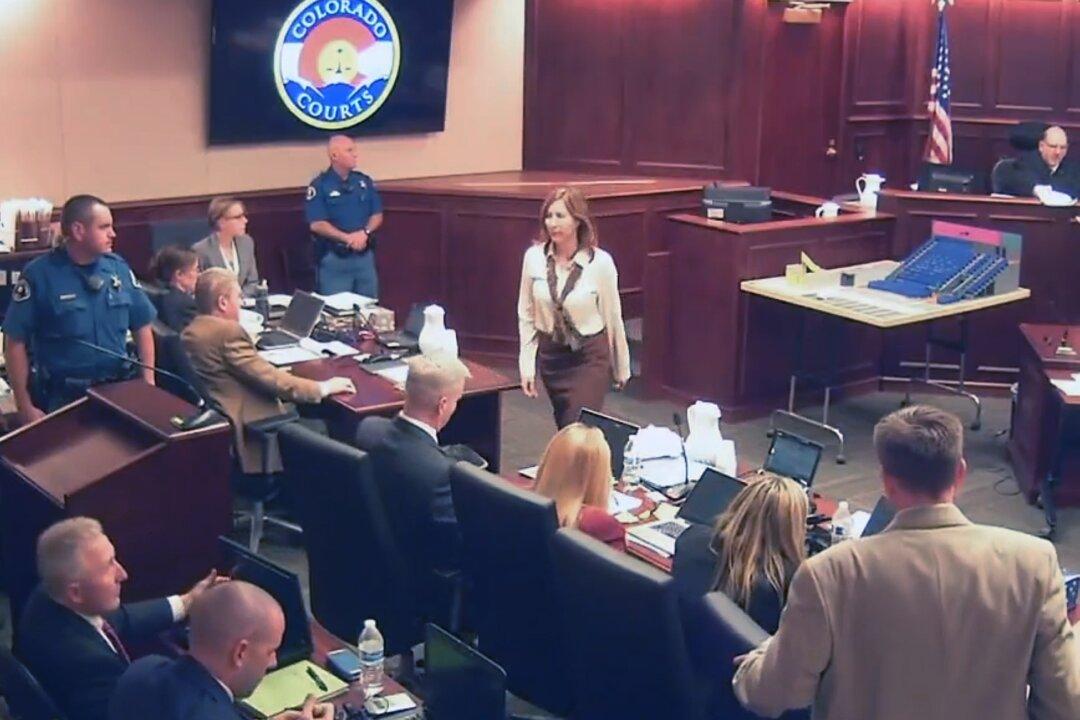CENTENNIAL, Colo. — The psychiatrist who treated James Holmes before he attacked a Colorado movie theater said she did not have enough evidence to have him detained but was so concerned after he confessed his homicidal thoughts that she violated his health care privacy to call his mother.
Dr. Lynne Fenton testified Tuesday that Holmes told her he was having homicidal thoughts as often as three or four times a day but never let on that he was building a weapons arsenal and planning a mass killing. If he revealed his intent, “I likely would have put him on a mental health hold and contacted the police,” Fenton said.
But her concerns persisted, even after he abruptly walked out of her office on June 11, 2012, about a month before he sprayed bullets into the audience at a Batman movie, killing 12 people and wounding 70 others.
Fenton called Holmes’ mother but was told that her patient had been shy and socially awkward for many years, diminishing the apparent risk that he would be a danger to himself or others.
“I thought it was much less likely this was a sudden, new psychotic break,” Fenton said.
Freed from patient-client privilege by Holmes’ insanity plea, Fenton’s testimony in Holmes’ death penalty trial marked her first public statements about him. Among other things, she described his behavior as anxious, hostile and bizarre. It was so worrisome that she took it upon herself to alert campus police but didn’t find the evidence needed to hold someone against his will.
Defense attorneys say Holmes is schizophrenic and was in the grips of a psychotic episode when he carried out the attack on July 20, 2012. If the jury agrees, he'll be committed indefinitely to a mental hospital.
The state must prove he was legally sane at the time, which is the conclusion of two court-appointed psychiatrists who examined Holmes months and years after the attack. A guilty verdict could bring the death penalty or life in prison without parole.
Fenton’s testimony helped explain how she handled Holmes and his thoughts of killing people. But it’s unclear how it will play with jurors trying to assess his mental state at the time of the shooting.
Under cross-examination by defense attorney Tamara Brady, Fenton acknowledged she had written in her notes that Holmes “may be shifting insidiously into a frank psychotic disorder such as schizophrenia.”
Fenton’s session notes said his demand to know her “philosophy” might indicate “psychotic level thinking.” When Brady pressed her on that, she confirmed Holmes was at the age when schizophrenics sometimes experience their first psychotic break.
Fenton and Holmes had five therapy sessions between mid-March and June 11, 2012, when he dropped out of the graduate neuroscience program at the University of Colorado. He had come in with what a social worker described as the worst obsessive-compulsive disorder symptoms she had ever seen.
Holmes got medicine but deflected efforts to probe his thinking, Fenton said.
At times, he showed flashes of anger, she said.
When Holmes couldn’t get a prescription filled because Fenton miswrote his name, he sent her an email with an emoticon that he said signified him punching her. When she asked him about it, he responded: “Violence, is that what you wanted to hear?”
Fenton said Holmes may have been worried that she was trying to lock him up. Brady asked whether Fenton pressed him on that point, and she said she did, but “he wouldn’t answer.”
Two years after the attack, Holmes told a court-ordered examiner that he kept secret his elaborate schemes and to-do lists. He waited until just before the assault to mail his journal to Fenton.
“I kind of regret that she didn’t lock me up so that everything could have been avoided,” Holmes told the examiner.
Fenton faces a lawsuit accusing her of not doing enough to stop the attack.
Her testimony came as prosecutors wrap up their case against Holmes. On Wednesday, a juror was dismissed because she recognized a witness who testified last month, and the judge said she didn’t reveal all the facts about it.
Four other jurors have been dismissed in a little over a week, leaving 19 jurors, including seven alternates.





